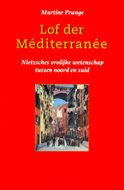
Wisdom was core topic of philosophy from ancient times until Nietzsche (1844-1900). As a rule, the question 'what is wisdom?' fell apart into the subquestions 'what is truth?' and 'how to live?' However, because wisdom was the final aim of philosophical research, metaphysics, natural philosophy, epistemology and ethics overlapped. Philosophy was a truly interdisciplinary discipline, in which the different fields interconnected by being of each other's service. For example, knowledge (of the truth) was not valued as knowledge, but for what it added to our reflections on the good life. Wisdom was not knowledge, but about the meaning of knowledge for human living.
The subquestions after truth and the good life have developed into autonomous questions with accordingly autonomous philosophical disciplines, which do well without each other. Moreover, the question after the truth has, as a result of growing metaphysical scepticism, been transformed into questions of logical validity of argumentations and propositions, and probability. The question after the good life has, from Kant (1724-1804) onwards, been undersnowed by questions of law, rules, and justice - i.e. virtue ethics was overshadowed by deontological moral philosophies.
Since Anscombe's published her article "Modern Moral Philosophy", in Philosophy 33 (1958), the interest in Aristotelian virtue ethics has been on the rise again. This has opened up ways for the development of ethical theories revolving around virtue, human character, and, the 'eudaimonist' types of virtue ethics, human flourishing or 'excellence'. However, there remains a lot to do, especially because Christine Swanton (Virtue Ethics. New York: OUP, 2003) is the first to take distance from the Aristotelian, rationalist, type of virtue ethics, turning towards Nietzsche's concept of 'self-love'. This concept is closely related to his pursuit of a life in practical wisdom and joy, or 'joyful wisdom'. In critical discussion with Swanton and taking recourse to Nietzsche, Goethe, Spinoza and Epicurus, I currently seek to develop a philosophy of joyful wisdom, containing an eudaimonist type of virtue ethics, in which the quest for wisdom restores knowledge, joy, happiness, excellence, and human flourishing in their interdependency.
The subquestions after truth and the good life have developed into autonomous questions with accordingly autonomous philosophical disciplines, which do well without each other. Moreover, the question after the truth has, as a result of growing metaphysical scepticism, been transformed into questions of logical validity of argumentations and propositions, and probability. The question after the good life has, from Kant (1724-1804) onwards, been undersnowed by questions of law, rules, and justice - i.e. virtue ethics was overshadowed by deontological moral philosophies.
Since Anscombe's published her article "Modern Moral Philosophy", in Philosophy 33 (1958), the interest in Aristotelian virtue ethics has been on the rise again. This has opened up ways for the development of ethical theories revolving around virtue, human character, and, the 'eudaimonist' types of virtue ethics, human flourishing or 'excellence'. However, there remains a lot to do, especially because Christine Swanton (Virtue Ethics. New York: OUP, 2003) is the first to take distance from the Aristotelian, rationalist, type of virtue ethics, turning towards Nietzsche's concept of 'self-love'. This concept is closely related to his pursuit of a life in practical wisdom and joy, or 'joyful wisdom'. In critical discussion with Swanton and taking recourse to Nietzsche, Goethe, Spinoza and Epicurus, I currently seek to develop a philosophy of joyful wisdom, containing an eudaimonist type of virtue ethics, in which the quest for wisdom restores knowledge, joy, happiness, excellence, and human flourishing in their interdependency.


2 opmerkingen:
The world badly needs this philosophy of joyful wisdom you are seeking. Keep up the good work, Nietzsche pall.
Thanks a lot masjenka!
Een reactie posten